Cell Biology

Simon Bullock
Talk: "Shedding light on cytoplasmic mRNA transport mechanisms"
Simon trained with Rosa Beddington FRS (National Institute for Medical Research) and David Ish-Horowicz FRS (CRUK London Research Institute) before establishing his own group in the Cell Biology Division of the MRC Laboratory of Molecular Biology in 2004. He was awarded a Lister Institute Research Prize in 2008 and was elected a member of EMBO in 2015. He is also the co-founder of the Microscopes4Schools outreach project. Simon is fascinated by the problem of how the internal space of cells in organised and studies this process in the context of microtubule-based transport of organelles and macromolecules. His group combines biochemistry, in vitro reconstitution, advanced microscopy and genetics to shed light on the molecular mechanisms and principles of cargo transport by microtubule motors. Highlights from his research group include the identification of factors that link the dynein motor to diverse cargoes in Drosophila and mammalian cells, elucidating key regulatory mechanisms for dynein and kinesin motors through single-molecule resolution in vitro motility assays, and identifying novel regulators of motor and microtubule biology through biochemical and genetic screens. In addition, Simon’s team have developed CRISPR tools that are widely used by the Drosophila community.
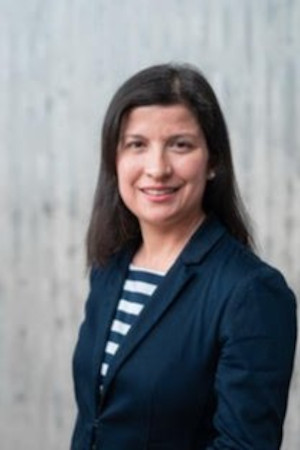
Neva Caliskan
Talk: "Old virus, new biology: Translational landscape of HIV-1"
Neva Caliskan studied molecular biology and genetics at the Middle East Technical University in Ankara (Turkey) and worked as a visiting scholar in 2005 at EMBL in Heidelberg. She received her Master's degree at the International Max Planck Research School for Molecular Biology (Göttingen) in 2009. After completing her PhD in 2013, she first worked as a postdoctoral fellow at the Department of Physical Biochemistry at the Max Planck Institute for Biophysical Chemistry and then as a project leader at the same institute from 2015-2017. Since January 2018 she has been heading the junior research group "Recoding Mechanisms in Infections" at the Helmholtz Institute for RNA-based Infection Research (HIRI) in Würzburg. As of May 2018 she holds a junior professorship at the Faculty of Medicine of the University of Würzburg.
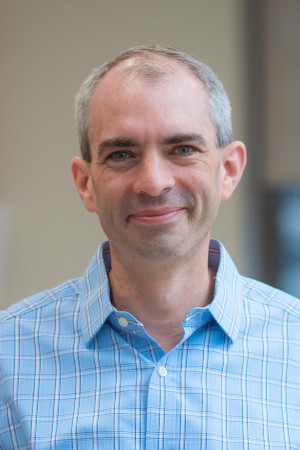
Iain Cheeseman
Talk: "Rewiring cell division"
Iain Cheeseman is currently a Member of Whitehead Institute and Professor of Biology and Associate Department Head at MIT. He received his Ph.D. in Molecular Cell Biology from the University of California, Berkeley in 2002 with David Drubin and Georjana Barnes. He conducted his post-doc with Arshad Desai at the Ludwig Institute and UCSD. Iain has focused particularly on studying the molecular mechanisms that underlie cell division. He discovered and analyzed numerous components of the kinetochore, the specialized macromolecular structure that assembles on centromere DNA to act as the primary chromosomal attachment site for the microtubule polymers that power chromosome movement. This includes work in a variety of experimental organisms including budding yeast, C. elegans, human cells, starfish, and mouse models. The Cheeseman lab currently focuses on the mechanisms of chromosome segregation and cell division in human cells using a combination of cell biological (including large-scale cell biology using pooled optical screening), functional genetics, biochemical, and proteomic approaches. In particular, they are excited about understanding how the cell division machinery is modulated and rewired across diverse physiological conditions, including across cell state, tissues, development, aging, evolution, and disease. In addition to his research interests, Iain is invested in to working to ensure that science is a positive and constructive place where everyone can thrive including how we enable effective training and mentoring and communicate our research findings. Mostly, Iain is a big nerd who thinks that science and mitosis in particular are frigging cool. He also has two amazing daughters, who keep him honest and occasionally laugh at his dad jokes.
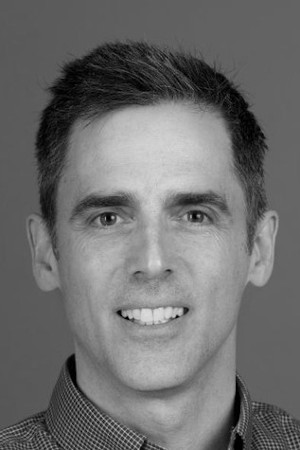
Robert J. Keenan
Talk: "Mechanisms of membrane protein biogenesis at the ER"
Robert Keenan received his undergraduate degree in biology from Bates College, a small liberal arts school in Lewiston, Maine. He carried out his graduate and postdoctoral research at the University of California, San Francisco (UCSF), studying protein targeting under Robert Stroud and Peter Walter. After spending the next five years doing directed enzyme evolution at a biotechnology startup in Redwood City, California, he joined the faculty at the University of Chicago, where he is currently a Professor in the Department of Biochemistry and Molecular Biology. Research in the Keenan lab focuses on the discovery and mechanistic dissection of secretory and membrane protein biogenesis pathways, and employs a variety of strategies including in vitro reconstitution, cryo-electron microscopy and cell based assays.
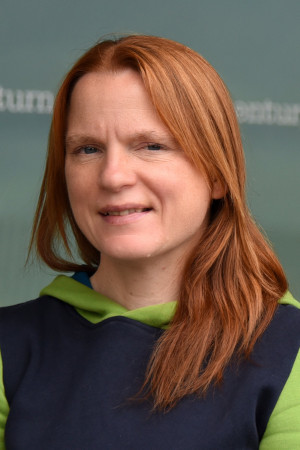
Janine Kirstein
Talk: "Chaperoning amyloid proteins"
Janine Kirstein is a Professor for Biochemistry of Aging at the Friedrich Schiller-University and the Leibniz Institute on Aging in Jena, Germany. Her research focus is on protein folding and pathologies associated with protein folding defects such as Huntington’s and Alzheimer’s disease. She uses biochemical techniques to study how molecular chaperones maintain the fold and function of the proteome and proteins at risk. These mechanistic studies are complemented by analyses using the aging model system Caenorhabditis elegans. Her lab uses the nematode to study the aggregation and pathology of the human disease proteins Aβ42, tau and mutant Huntingtin with aging.
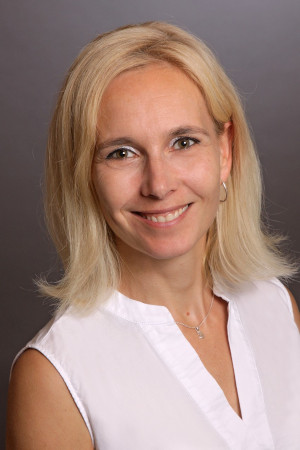
Ricarda Richter-Dennerlein
Talk: "A roadmap for ribosome assembly in human mitochondria"
Ricarda Richter-Dennerlein studied Molecular Biotechnology at the Technical University Dresden (Germany). For her PhD, she had chosen the laboratory of Robert Lightowlers and Zofia Chrzanowska-Lightowlers at the Newcastle University (UK). After a successful PostDoc period in the research group of Thomas Langer at the University of Cologne, funded by the EMBO-long-term Felllowship, she had selected Göttingen and its University Medical Center (UMG) for her further scientific career. Subsequently to a postdoctoral fellow in the research group of Peter Rehling, she established her own independent research group at the UMG in 2016 funded by the DFG Emmy-Noether grant. In 2023 she was appointed to a W2 Professor for Biochemistry at the UMG, Institute for Molecular Biology, and awarded with the first “Lower Saxony Impulse Professorship” by the Lower Saxony Ministry of Science and Culture and the Volkswagen Foundation.

Silvia Santos
Talk: "Our first choices: decoding signals during embryonic development"
Silvia is a quantitative stem cell biologist specialized in cell decision-making. Originally from Portugal, she did her undergraduate studies in Molecular and Cellular Biology in the UK. Silvia moved to Heidelberg for a PhD at the EMBL where she showed how signalling dynamics affects cell fate choices. Silvia then moved to Stanford University for her post-doctoral training (EMBO and HFSP fellow) to explore spatial-temporal control principles in cell division. Silvia joined the Francis Crick Institute in 2018 as a group leader to establish the Quantitative Stem Cell Biology lab. Silvia’s lab combines single cell experimental and theoretical approaches to understand decision-making during developmental transitions. In this context, her lab studies cell cycle remodelling, cellular differentiation and the interplay between cell division and fate choice in early development, using human embryonic stem (hES) cells and 3D models of mammalian development as model systems. Her work has an impact in the understanding of health and disease states.
Genome Maintenance and Expression
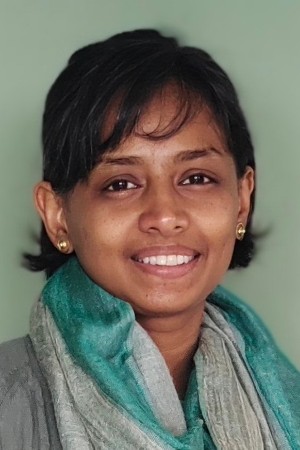
Anjana Badrinarayanan
Talk: "Tracking living machines: bacterial DNA replication and repair"
Anjana is an Associate Professor of Microbiology at the National Centre for Biological Sciences (Bangalore, India). Using cell biological approaches, in conjunction with genetic, computational and biochemical tools, her group addresses fundamental questions about the regulation of DNA damage response and repair mechanisms in microbial systems in vivo. Her studies have underscored the power of single-cell microscopy to study DNA repair in vivo, and has provided new insights into general principles of genome integrity maintenance and its likely impact on microbial adaptation/survival.
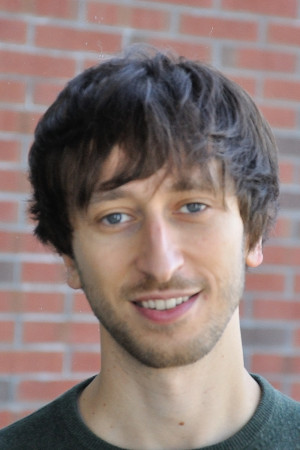
Marco Fumasoni
Talk: "Experimentally evolving cellular miniaturization"
Marco Fumasoni was trained as a molecular geneticist at IFOM (IT), studying the mechanisms that maintain genome stability during the replication of damaged DNA templates. He then moved to Harvard University (USA) for his postdoc, where he used experimental evolution combined with molecular, cellular, and quantitative approaches to study the mechanisms and dynamics of genome evolution. Since 2021, he has been a group leader at the Instituto Gulbenkian de Ciência (PT), where he studies the interplay between genome maintenance mechanisms and evolutionary forces in shaping cell biology.
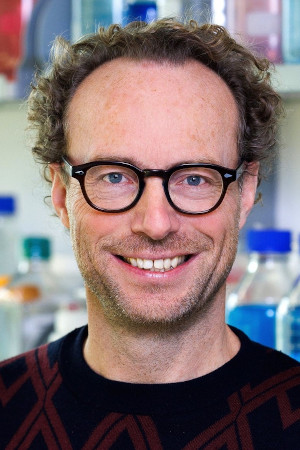
Daniel Gerlich
Talk: "How 3D genome organization guides DNA repair"
Daniel Gerlich graduated in Biology from University of Freiburg, Germany, in 1998. He earned his PhD from University of Heidelberg in 2002, developing computer vision tools for multi-dimensional bioimage data in the group of Roland Eils. After postdoctoral research on the organization of chromosomes in Jan Ellenberg's laboratory at the European Molecular Biology Laboratory (EMBL) Heidelberg, he established his own laboratory in 2005 as Assistant Professor at the Institute of Biochemistry at ETH Zurich. In 2012, he moved to the Institute of Molecular Biotechnology of the Austrian Academy of Sciences (IMBA) at the Vienna BioCenter to take a position as senior research group leader. His research focuses on cell division, chromosome organization, and computational methods for bioimage- and genomics data analysis. Dr. Gerlich has received several honours for his scientific contributions, including a European Young Investigator Award of the European Research Council (2005), EMBO young investigator (2009) and EMBO full memberships (2017), and ERC consolidator (2012) and Advanced (2021) grants.
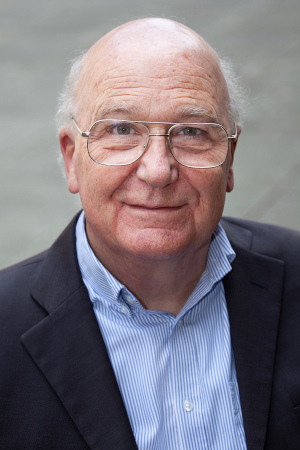
Douglas Higgs
Talk: "Switching genes on and off during haematopoiesis"
Douglas Higgs qualified in Medicine at King’s College Hospital Medical School in 1974 and trained as a haematologist. Until April 2020 he was Director of the MRC Molecular Haematology Unit and Director of the MRC Weatherall Institute of Molecular Medicine (WIMM). He is currently Professor of Haematology at the University of Oxford and a Group Leader in the WIMM. Douglas Higgs’ research has made a major contribution to our understanding of how mammalian genes are switched on and off during lineage specification and differentiation using haematopoiesis as his model. As part of this he has established the alpha-globin cluster as one of the best understood models of mammalian gene expression and thereby largely unraveled the molecular basis and improved the management of alpha-thalassaemia, a form of inherited anaemia affecting millions of individuals throughout the world. In addition to understanding how mammalian genes are normally regulated his group has made a significant contribution to establishing the general principles by which they are perturbed in human genetic disease. His group is currently involved in using their knowledge to manipulate gene expression in patients with thalassaemia. This work has been done with reference to, and fully integrated with, the exponential development of molecular genetics and its application to clinical medicine.
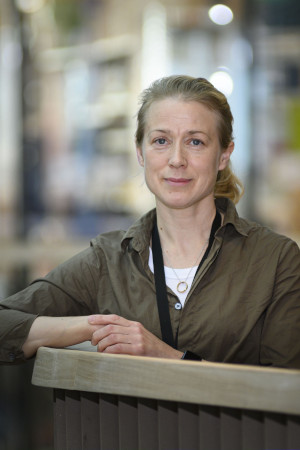
Anna Wredenberg
Talk: "The role of mitochondrial S-adenosylmethionine in health and disease"
Anna Wredenberg is a senior consultant in clinical genetics at the Center of Inherited Metabolic Diseases at Karolinska University Hospital and a professor in mitochondrial biology at the Department of Medical Biochemistry and Biophysics at the Karolinska Institutet. Clinically, she specialises in investigating and diagnosing patients with suspected inborn errors of metabolism, including mitochondrial diseases. Professor Wredenberg has been studying mitochondrial function in various animal models since 2000 and established her own research group at the Karolinska Institutet in 2012, focusing on understanding mitochondrial gene expression and the role of methylation as post-transcriptional and post-translational modifications within mitochondria.
Immunology
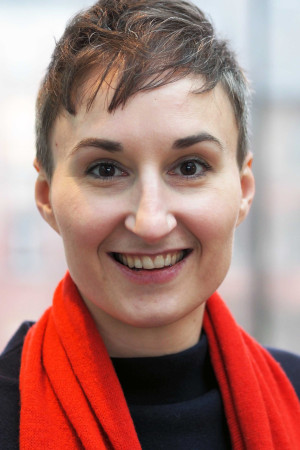
Olivia Majer
Talk: "Being in the right place - how sorting defects of immune receptors can cause disease"
Olivia Majer earned her PhD from the University of Vienna, specializing in the field of host-pathogen interactions during fungal infections. During her postdoctoral studies at the University of California, Berkeley, she delved into the cell biology of endosomal Toll-like receptors, investigating mechanisms disrupting tolerance to self-derived nucleic acids and promoting autoimmunity. She also pursued additional training in super-resolution microscopy at the FU Berlin, enabling deeper exploration of the subcellular organization of intracellular immune receptors. Since 2020, Oliva Majer has led a research team at the Max Planck Institute for Infection Biology, where she investigates the spatial subcellular organization and trafficking of innate immune receptors and their implications for autoimmune diseases.
Neurosciences
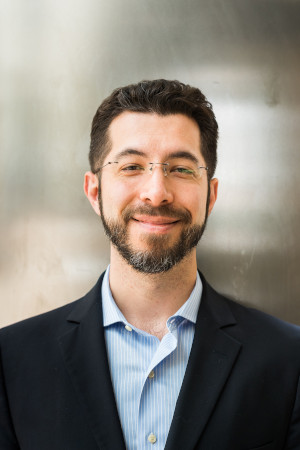
Ed Boyden
Talk: "Tools for analyzing, repairing, and simulating biological systems"
Ed Boyden is Y. Eva Tan Professor in Neurotechnology at MIT, an investigator of the Howard Hughes Medical Institute and the MIT McGovern Institute, and professor of Brain and Cognitive Sciences, Media Arts and Sciences, and Biological Engineering at MIT. He leads the Synthetic Neurobiology Group, which develops tools for analyzing and repairing the brain, and applies them systematically to reveal ground truth principles of brain function and to repair the brain. These inventions include optogenetics, expansion microscopy, tools for spatially and multiplexed imaging of biological signals, and new noninvasive brain stimulation methods. He co-directs the MIT Center for Neurobiological Engineering and the MIT K. Lisa Yang Center for Bionics. Amongst other recognitions, he has received the Croonian Medal (2019), the Canada Gairdner International Award (2018), and the Breakthrough Prize in Life Sciences (2016), and is an elected member of the National Academy of Sciences (2019).
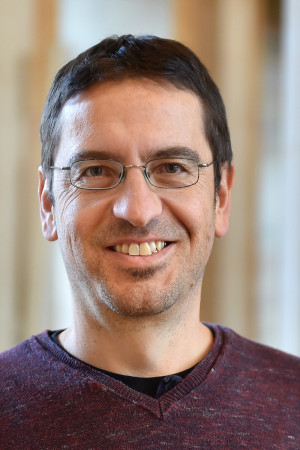
Gregor Bucher
Talk: "Studying brain diversification by generating comparative tools by genome editing in flies and beetles"
Gregor Bucher studied zoology and developmental genetics at the LMU Munich. During his PhD at LMU, he studied the function of patterning genes in the red flour beetle Tribolium castaneum and discovered parental RNAi. After two years of child care and working as scientific writer, he continued his career in Göttingen, where he established his independent group. In 2013, he was awarded a Heisenberg professorship and since 2017 he has been professor at the University of Göttingen. He is interested in the genetic basis of development and evolution of insect head and brain and in new modes of pest control using RNAi. His lab has been developing new transgenic tools for their emerging model organism. He initiated and led the first genome wide RNAi screen in an insect outsideDrosophila (DFG research unit FOR1234 “iBeetle”). He is part of the steering committee of the DFG priority program SPP2349 GEvol.
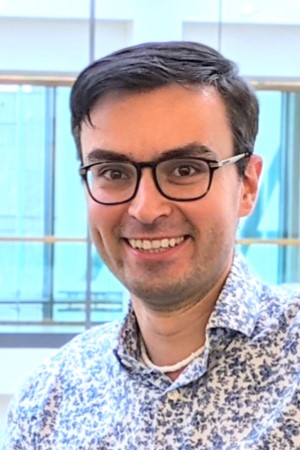
Dragomir Milovanovic
Talk: "Condensate biology at the synapse"
Drago is fascinated by how thousands of macromolecules and organelles self-organize at the synaptic boutons, the critical communication sites between neurons. Since January 2020, he has led the Laboratory of Molecular Neuroscience within the German Center for Neurodegenerative Diseases (DZNE). Drago pioneered the concept of liquid-liquid phase separation at the synapse, demonstrating that synaptic vesicles can organize into a distinct liquid phase, akin to oil droplets in water (Milovanovic et al., Science 2018, Hoffmann et al., Nat Comm 2023). The work from his lab showed that the condensates of synaptic vesicles act as a buffer recruiting disordered synaptic proteins such as alpha-synuclein, a protein implicated in the pathology of Parkinson’s Disease. Recently, the lab discovered that condensates can harbor electric potential at their interfaces, suggesting a new function of condensates as mesoscale capacitors that can store charge. Condensate biology is now emerging as a key mechanism for understanding synapse organization (Sansevrino et al., Trends Neursci, 2023).
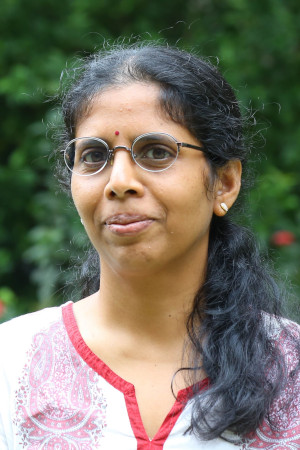
Sheeba Vasu
Talk: "Molecular correlates of how circadian clocks drive waveform plasticity - lessons from fly chronotypes"
Sheeba Vasu is currently an Associate Professor at the Jawaharlal Nehru Centre for Advanced Scientific Research (JNCASR), Bangalore, India. She received her PhD from JNCASR in 2002. Subsequently, she moved to UC Irvin, CA, USA, for her postdoctoral research. Sheeba’s research tackles two important and distinct aspects of circadian clocks – their evolution and underlying neuronal circuitry. Having established a unique set of populations subjected to long-term selection under naturalistic environments she demonstrated evolution of both circadian clock properties and life-history traits. She showed that evolution of extremely ‘early’ and ‘late’ chronotypes is accompanied by altered circadian clock organization including heightened temperature sensitivity in the ‘late’ chronotypes. Employing genetic manipulations in Drosophila melanogaster, her studies suggest that a circadian neuropeptide signals to sleep centers via its cognate receptors. Her studies were the first to suggest a role for gap-junction proteins - Innexins - in the fly circadian circuit. She demonstrated the role of temperature-sensitive ion channel dTRPA1 in mediating rhythmic locomotion and revealed that a circadian neuropeptide pigment-dispersing factor suppresses nighttime activity under continuously warm days.
Structural Biology

Nenad Ban
Talk: "Revealing the machinery for production of proteins in human cells"
Since 2000, Nenad Ban is a professor of structural molecular biology at ETH Zurich. He is a pioneer in studying gene expression mechanisms and the participating protein synthesis machinery in all kingdoms of life, both in terms of the chemistry of the process and with respect to molecular mechanisms of translation regulation, and of co-translational folding, processing, and targeting to membranes. His group revealed the mechanisms behind the key steps in eukaryotic cytoplasmic and mitochondrial translation with a broad impact on a wide range of fields in biology, chemistry, and biomedicine. Nenad Ban is a member of the National Academy of Sciences of the United States of America, European Molecular Biology Organization, the German Academy of Sciences, and a recipient the Heinrich Wieland Prize, the AAAS Newcomb Cleveland Prize, the Jung Prize for Medicine, and the Otto Naegeli Prize for biomedicine.
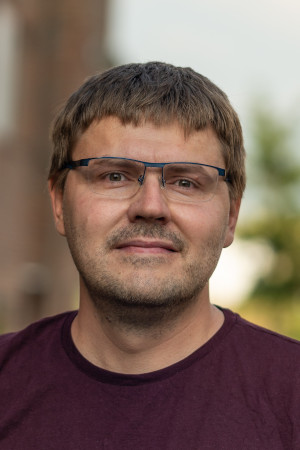
Oleksiy Kovtun
Talk: "Exploring the architecture of the retromer, a cargo sorting machine of endosomes"
Oleksiy Kovtun is a structural biologist studying endocytosis and membrane trafficking. He received a PhD from the University of Queensland in Australia for research in in vitro protein synthesis. After graduation, Oleksiy focused on structural studies of membrane trafficking complexes, first in the Bret Collins' group at the University of Queensland, and then in the John Briggs' group at EMBL-Heidelberg, Germany, and LMB-MRC, UK. He started his group at MPI for Multidisciplinary Sciences in Göttingen in 2021 with a mission to understand the mechanistic basis of the function of vesicular coats. Currently, his team is focused on the retromer, a coat that sorts cargo in the endosome, the logistical hub of the cell. They primarily use cryo-electron tomography and subtomogram averaging to resolve retromer assembly on the membranes. This approach unravels how the retromer selects and directs cargo into diverse trafficking routes, the function critical for highly specialised cells and commonly affected in human pathologies.
Bioinformatics
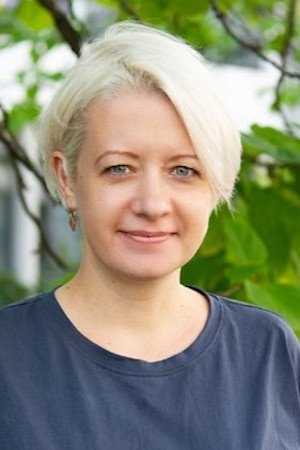
Maria Fedorova
Talk: "Lipidome plasticity and lipid quality control"
Maria Fedorova studied Biochemistry at Saint-Petersburg State University, Russia and obtained her PhD at the Faculty of Chemistry and Mineralogy, Leipzig University, Germany. She worked as a Group Leader at the Institute of Bioanalytical Chemistry at the University of Leipzig. In 2021 Maria group moved to the Center for Membrane Biochemistry and Lipid Research, TU Dresden. Maria research is focused on understanding the mechanisms behind plasticity, adaptation and maladaptation of natural lipidomes in response to different stressors (metabolic, redox, etc). Using innovative mass spectrometry and bioinformatics solutions, her group looks at the lipid quality control machinery at subcellular, cellular and organismal levels. Maria also serves as a vice-chair of Pan-European Network in Lipidomics and Epilipidomics (EpiLipidNET), a community of researchers interested in lipid biology and lipidomics technologies, supported by European Cooperation in Science and Technology.

